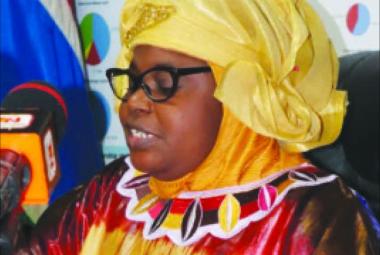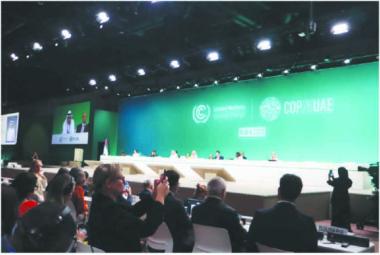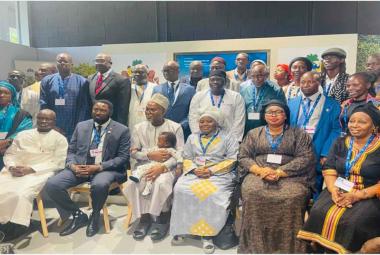By Fatou Sanneh
The Minister of Environment, Climate Change and Natural Resources, Rohey John-Manjang on behalf of the Government of The Gambia on Monday, 04th September 2023 joined other African Union member states in signing the Kampala Ministerial Declaration on Migration, Environment and Climate Change (KDMECC-Africa) at the ongoing Africa Climate Summit in Nairobi, Kenya.
This initiative followed the Inter-Ministerial Conference on Migration, Environment, and Climate Change (MECC) to address migration issues in the continent, held in July 2022 in Kampala, Uganda.
The conference brought together ministers of Environment, Interior, and Foreign Affairs, along with their technical experts. The gathering resulted in the landmark ‘Kampala Ministerial Declaration on Migration, Environment, and Climate Change,’ which was signed by African countries.
According to Hon. John-Manjang, this is an opportunity for The Gambia to access support to enter into a legal framework guiding the migration issues in the country. “This will enable our country enter into a legal agreement to formalise the issue of legal migration to have it planned (train the right skills), implemented, and to manage the process for both our interest and that of the receiving countries,’’ she stated.
She revealed that discussions are underway with her counterpart in Uganda, to have The Gambia on the top of the priority list of countries to benefit from this initiative.
Africa, constituting 33 out of the 46 Least Developed Countries, remains the hardest hit by climate change impacts; especially vulnerable African states, despite contributing only about 4 percent to global greenhouse gas emissions. Extreme weather, fueled by climate change, has pushed around 250 million people into high water stress, while approximately 700 million are expected to be displaced by 2030 due to water-related crises. Without concrete climate and development action, as many as 216 million people in Africa could be compelled to migrate within their countries by 2050 due to slow-onset climate factors. The non-inclusion of large-scale migration in national adaptation strategies, often relegating migration as an adaptation failure, fails to recognise that migration can be a positive adaptation strategy if undertaken in a safe, orderly, and regular manner.
The positive response to the Declaration by African Union Member States and the identified need for a common position and solutions to challenges that all countries in the continent are facing, led the governments of Kenya and Uganda to invite all African Union Member States to participate in the development of a continental expansion of the Declaration (KDMECC-AFRICA).
The Declaration aims to strengthen the existing initiatives aimed at accelerating the implementation of a climate and economy transition in the context of sustainable development. It was signed by the member states in the spirit of regional integration, cooperation, and fraternity.
Key commitments in the declaration include: addressing the adverse impacts of climate change on desertification affecting agricultural land, pastoral land, water, infrastructure, oasis areas, ecosystems, and the fisheries sector, which impacts affect both marine and freshwater aquatic resources that rely on the blue economy sustainably; strengthen the existing initiatives aimed at accelerating the implementation of a climate and economy transition in the context of sustainable development, making special mention to the three African Climate Commissions launched during the First African Action Summit, on the margin of COP22, in 2016; include migration and climate change topics within local development plans; strengthen the capacity of the healthcare infrastructure, integrate climate change considerations into existing health policies and strategies, taking into account gender-differentiated impacts and responses, and improved community-level health care and the dissemination of information on changing health risks to enhance the response to climate-related diseases; strengthen international and regional cooperation and integration on migration governance and Climate Change action;Incorporate human mobility considerations into National Communication reports (NCs), biennial transparency reports (BTRs), National Adaptation Plans (NAPs) processes, and other pertinent climate change policies and strategies at national, sub-national, and local levels;






